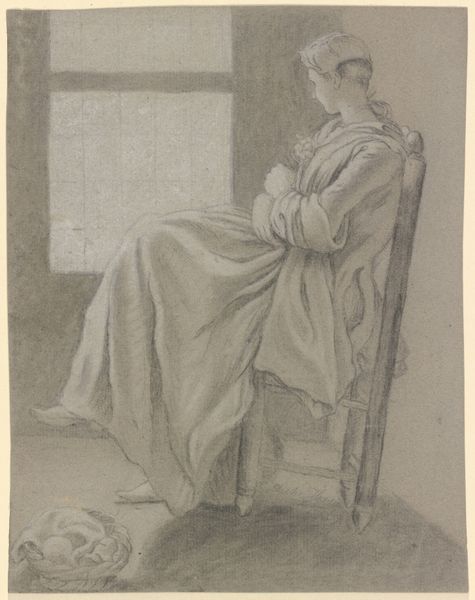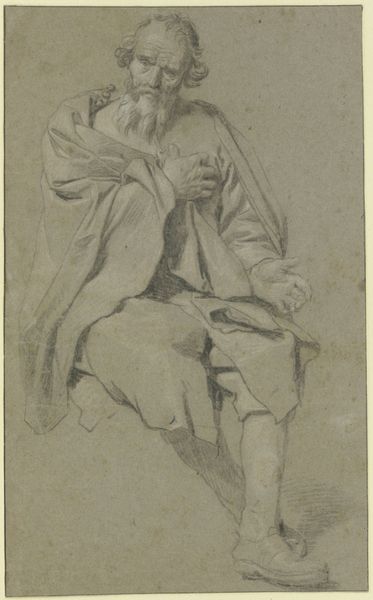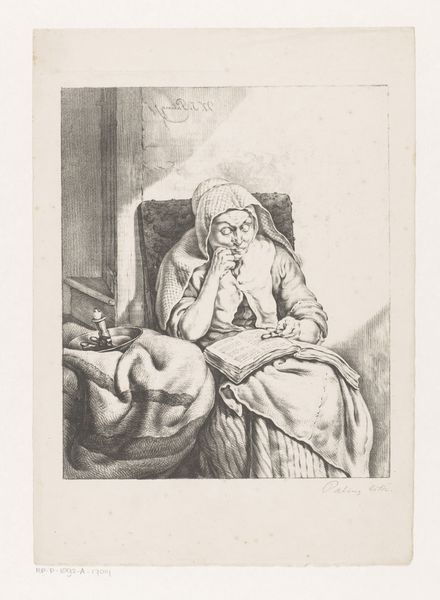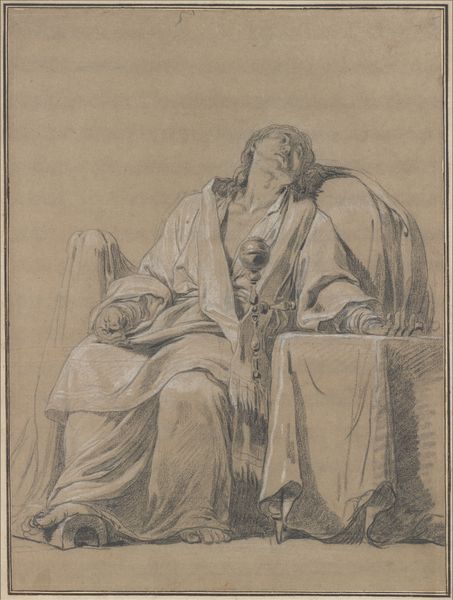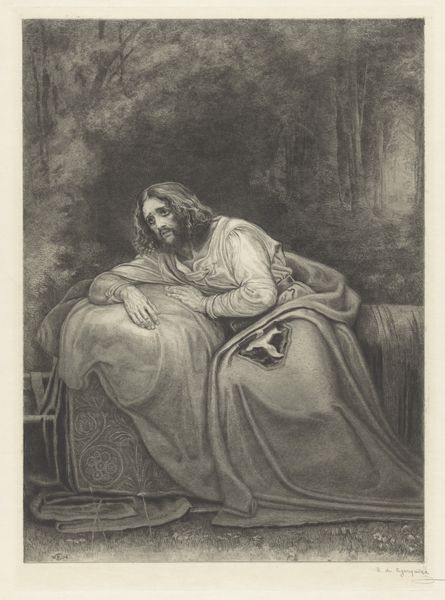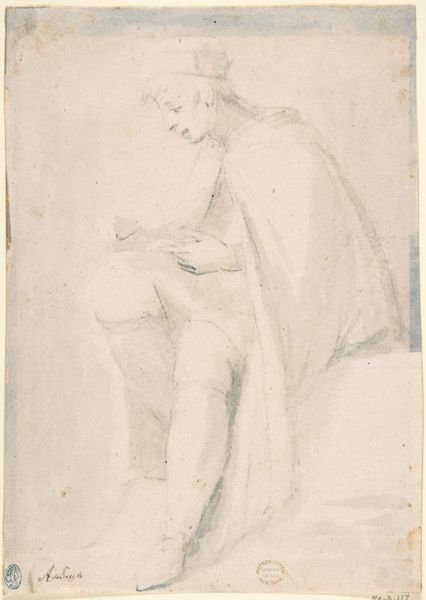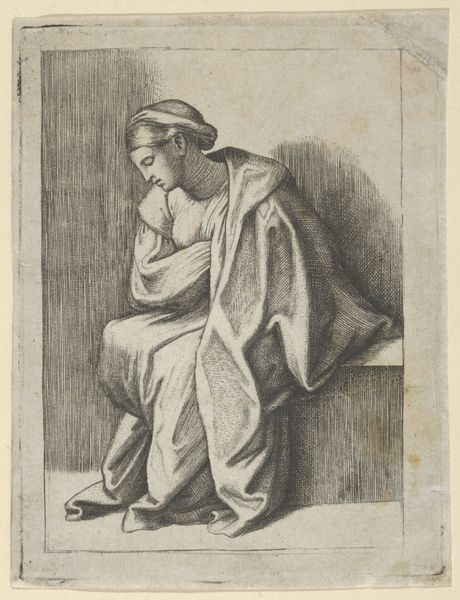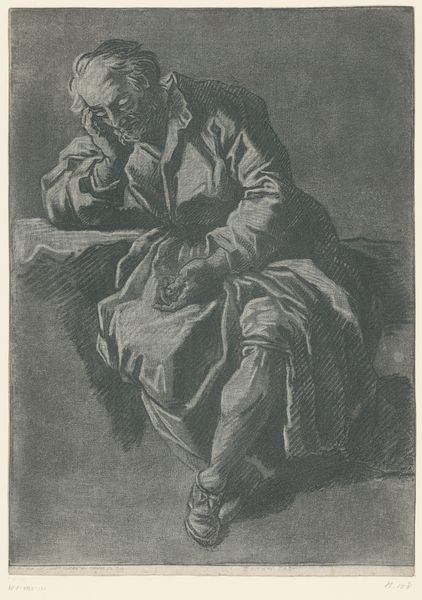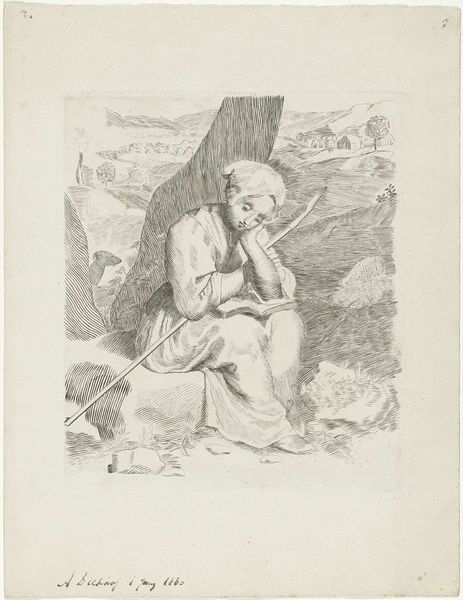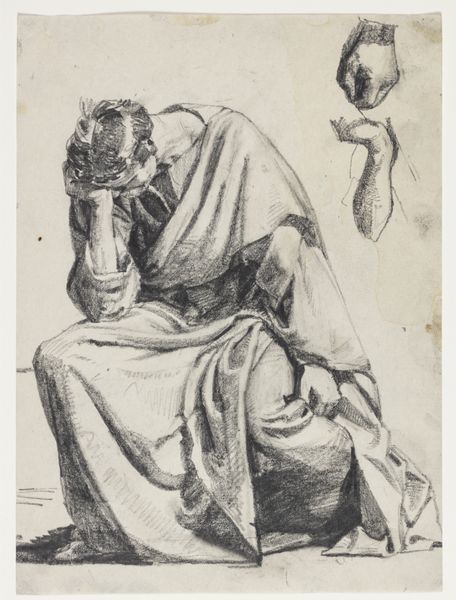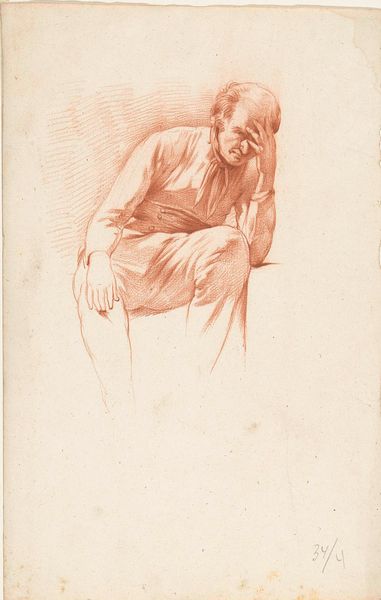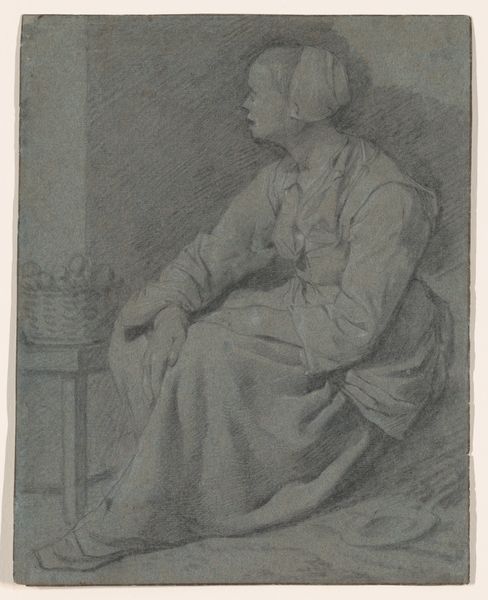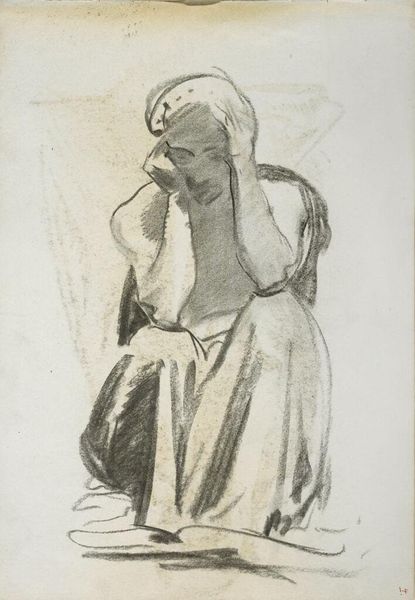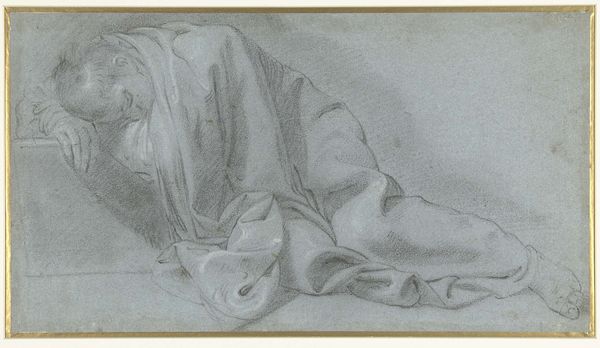
Kniender Jüngling nach rechts, aufwärts blickend, aus Raffaels _Disputa_ 1786
0:00
0:00
drawing, paper, pencil, chalk
#
portrait
#
pencil drawn
#
drawing
#
neoclacissism
#
pencil sketch
#
charcoal drawing
#
paper
#
portrait reference
#
pencil drawing
#
classicism
#
pencil
#
chalk
#
15_18th-century
#
portrait drawing
#
history-painting
Copyright: Public Domain
Friedrich Wilhelm Schäfer made this drawing, _Kneeling Youth Looking Right, Looking Up, from Raphael's Disputation_, using graphite on paper. The texture of the paper is crucial. Look closely, and you’ll see that Schäfer didn't just create an illusion of form, but worked with the tooth of the paper to create a grainy, atmospheric effect. By controlling the pressure and angle of the graphite, he coaxed a full range of tones from the simple materials. Copying the work of masters like Raphael was common practice, and it served a valuable purpose. It allowed artists to understand and internalize the techniques of those who came before, essentially learning through imitation. It was a way of training not just the hand, but also the eye, to see and interpret form. The drawing is not just a reproduction, it's an interpretation, a dialogue between artists across time, each bringing their own skills to bear. It reminds us that art-making is a conversation, built on layers of influence and innovation, and that even the simplest materials can yield profound insights.
Comments
No comments
Be the first to comment and join the conversation on the ultimate creative platform.
